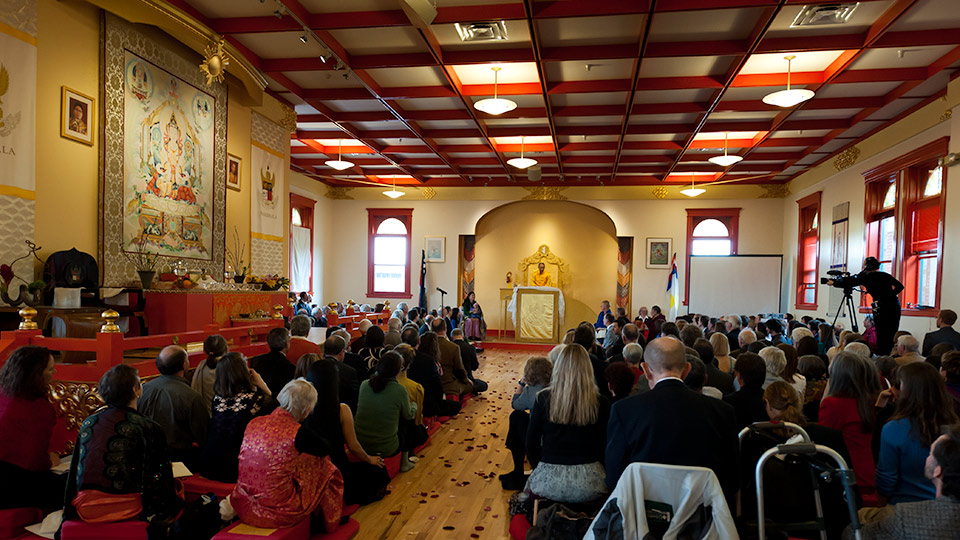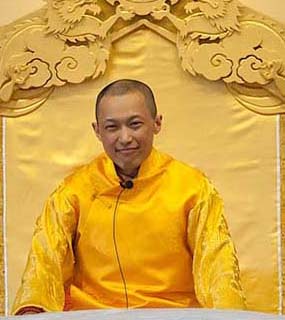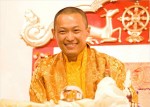Location: Roy Thomson Hall, Toronto, Canada
Event: State funeral for the Honourable Jack Layton, leader of Her Majesty's Loyal Opposition
Date: Saturday, August 27, 2011
Jack was always an innovator, a creator, often ahead of his time, as the expression goes. Click here for summary of career.
But he outdoes himself on August 27, 2011 when he uses his own funeral as the setting for his last political campaign!
Let’s go back a bit.
May 02, 2011 Canadian Federal Election: Jack, 61 year-old leader of the federal New Democratic Party, had just brought his party to its highest political status in its history on the federal level: he won enough seats to become Her Majesty’s Loyal Opposition.
August 22, 2011 – 04h45: Jack dies from cancer. Prime Minister Stephen Harper, understanding the great affection Canadians have for Jack, regardless of their political affiliations, announces that Jack will be given a state funeral — most unusual because state funerals are given if a former prime minister or cabinet minister dies. Jack has been neither.
August 22 – 26, 2011: Tributes to Jack come from some of the many people he worked with and knew over his lifetime. The one I like is given by Robin Sears who makes a point that no one else I am hearing has made: how Jack evolved as a politician. The concepts of evolution and transformation appeal to me. And that was my experience of Jack. When I first met him in the 1980s he seemed defensive and somewhat aggressive. Now he has the stature of a bodhisattva, those who serve others out of compassion without thought of what one can get for oneself.
August 27, 2011: The day of the funeral. Only 600 members of the public were allowed into Roy Thomson Hall for this event. There are 1,700 invited guests including the Prime Minister, other elected officials including mayors and cabinet ministers etc. etc. etc. I managed to be one of the 600.
Here are a few of my off-the-cuff notes from this past week of mourning and grief:
- The media reports describe Jack as “lying in repose” in his casket — I think to myself that it probably is the only time that Jack lay in repose in this lifetime! He was constantly working on behalf of others.
- Jack was a wonderful example of a great Shambhala (Tibetan) Buddhist warrior — warrior in the sense of courage, not aggression and hatred. His compassion fueled his courage. The Tibetan name for Great Warrior is Pamo Chenmo.
- We cannot become a genuine warrior until out heart is broken. Jack’s heart was broken by the suffering in the world. He truly manifested the genuine heart of sadness of the warrior. Juxtaposed with this sadness was his boundless uplifted spirit of optimism and hope.
- Jack for me embodied some of the qualities of the Great Eastern Sun — the sun shines on everyone. It does not distinguish between old, young, fat, thin, rich, poor, beautiful, ugly, etc. etc. etc. Jack helped everyone who came to him.
- Jack often spoken of as “passionate” about his beliefs, described as social democratic. Yes, he was passionate, but not fanatically fixated or obsessed.
- Jack as a loving warrior – I like this phrase because of the juxtaposition of two apparently opposite ideas: “loving” and “warrior.”
- Jack-in-the-box —his body is in his coffin now, but Jack was someone who could think outside the box.
- I hear people says it’s “unfair” that he died at this time. I don’t think Jack lived his life in terms of these kinds of dichotomies, e.g. fair\unfair. To me, Jack lived in the gap between all the dualistic, polar opposites by which we conventionally live and judge others. Again, some examples are stupid\intelligent; nobody\somebody; and the biggest one being the us-and-them dichotomy; etc. etc.
- Jack’s “political” message transcended politics and spoke to basic goodness (Quebecers call Jack “Le Bon Jacques”)
- Great teachers — whether they manifest as politicians, doctors, whatever — sometimes leave this life relatively early….we now have to stand on our own.
- I hear people say “I never met Jack but….” I think to myself “Yes you did. You meet Jack anytime you see someone taking time to help someone in a practical way. He did not tell people that it wasn’t “convenient” for him and maybe if he had time he’d get back to them. No. He just helped them. On the spot.
- Jack, despite his personal and political stature, provided the courtesies of everyday life to everyone he met. To me, these simple courtesies create peace.
- There’s a phrase in one of our Shambhala Buddhist chants that talks about becoming “gentle and tough” (page 3 of 4). To me, that was Jack.
Dear Jack,
Just a few last thoughts…….
I’ll bet you are making your journey through the after-death bardo on your bicycle! That is fitting, as you promoted the option of riding our bikes rather than riding the transit rails or driving our cars in the city of Toronto long before anyone else.
You’ll always be on my ballot whenever there’s an election.
Well done, our good and faithful servant.
If you found this post helpful, please share it with a friend. Then consider subscribing to the weblog. Just click on the Subscribe button in the navigation bar and follow one of the three, easy-to-follow instructions. Thank you.



